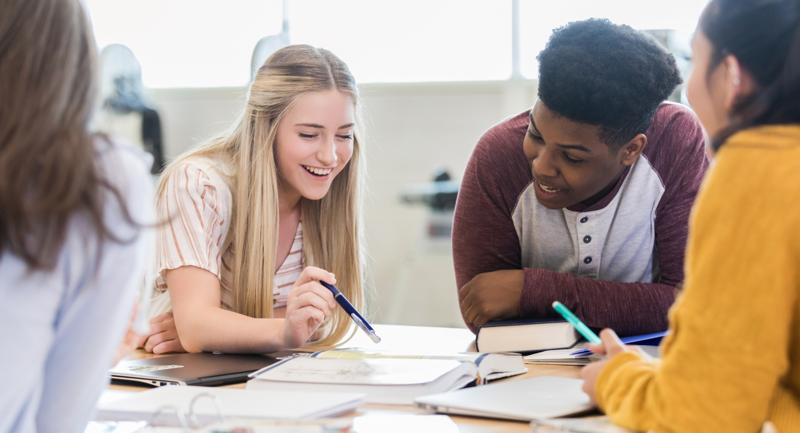I recently asked my 17-year-old daughter, a high school senior, what assignments or projects in her school career had the biggest impact on her learning, or on her interest level in the subject matter. She hesitated for a moment—because, when you’re 17, all impromptu parental questions are suspect—but then began excitedly reeling off a string of personal classroom highlights, talking in a way she seldom does about school. Among the learning experiences she mentioned were an 8th grade research project on genetic engineering in which she had to write and present in her own words on the key concepts and related moral issues; a high school biology course in which she and her classmates periodically taught their own mini-lessons; and a junior-year interdisciplinary project that involved designing and building a scale model for a proposed U.S. slavery memorial.
I thought this was an interesting—and telling—list. These weren’t necessarily the most flashy or high-profile academic undertakings she’d been involved in, but they all included elements of active learning and, perhaps more important, of taking ownership of the content. I was reminded of lesson-planning expert Jay McTighe’s frequent emphasis on ensuring that students gain “enduring understandings” of big ideas and have opportunities for knowledge transfer.
Since we were working on this issue of EL at the time, it also occurred to me that the experiences my daughter highlighted were good examples of times when she was empowered as a student. In each case, she was granted a certain degree of independence, and she was using her own voice and discretion to engage with the content and shape something that had meaning for her.
Indeed, these ideas echo throughout this issue on the empowered student. While our authors look at student empowerment from a variety of perspectives, they all see it as an antidote to the rote, “transactional” learning that often predominates in schools and that, as Gabriel Benn notes, leaves many students feeling disconnected from the classroom and ill-prepared for later challenges. In a sense, this issue is about both deepening schoolwork and helping students see that their own voices and intellects matter.
In the lead article, for example, English teachers Kelly Gallagher and Penny Kittle warn of the dangers of micromanaging or over-templating students’ writing assignments. Though well-intended, such practices can lead students to “rely on formula and standardization”—a mix that all but quashes creativity and intellectual engagement. Instead, Gallagher and Kittle argue, students need guided opportunities to make their own compositional decisions and build confidence and agency as writers.
Taking a more expansive tack, Benn writes about his experiences working to reclaim schools from decades of “cookie-cutter” instruction and test-driven curriculum narrowing by facilitating arts-integration projects that draw on students’ interests and give them greater ownership of school cultures. “To make our schools ‘suck’ less,” he says, “we have to be more inclusive in our approaches and allow students to exercise their influence in co-creating the changes they want to see in their schools.”
If these two articles set the tone for the issue, other pieces offer important insights into the varied components of authentic student empowerment in schools. Some look at the importance of giving students a greater and more knowledgeable stake in assessment and grading processes. Others showcase examples of school-improvement initiatives built around student voice and political agency. Still others examine the importance of cultivating student dissent and self-reflection skills. We also offer a look at the role that well-designed project-based learning can play in helping students develop “purposeful initiative” and create positive change in their communities.
As Bob Lenz and John Larmer write in that piece, student agency isn’t just about choice or personalization, “it’s about making a difference” and helping young people “take charge of their learning.” That’s a message that speaks strongly to many students today—and it’s one that whole child-oriented educators can surely embrace.








